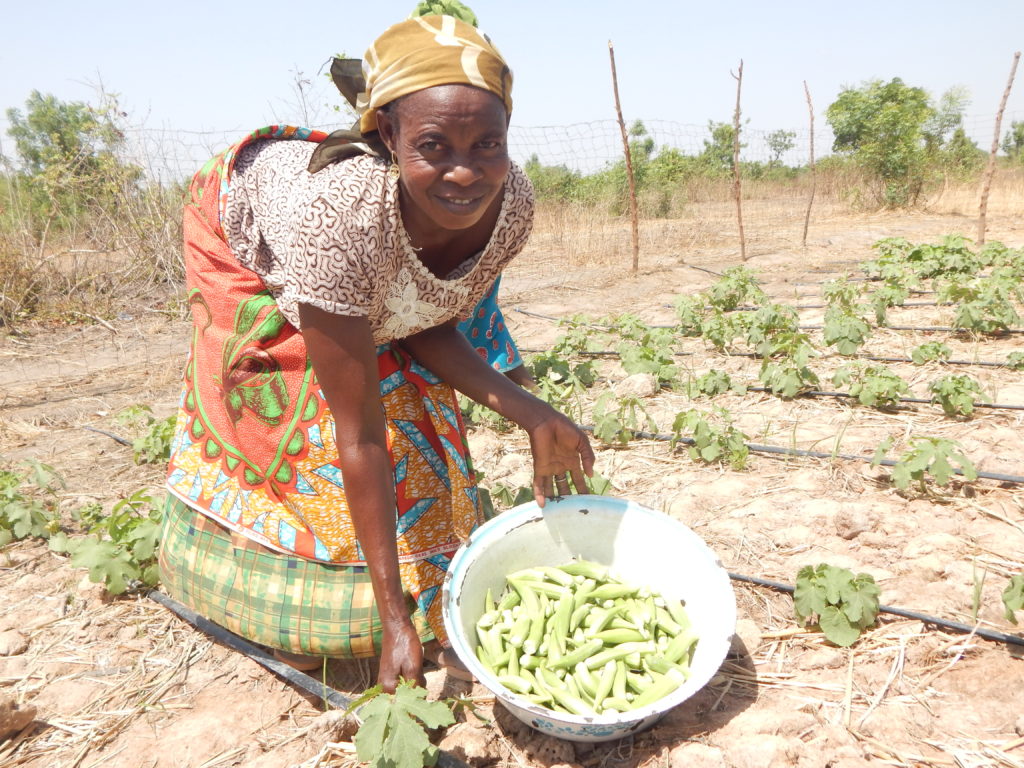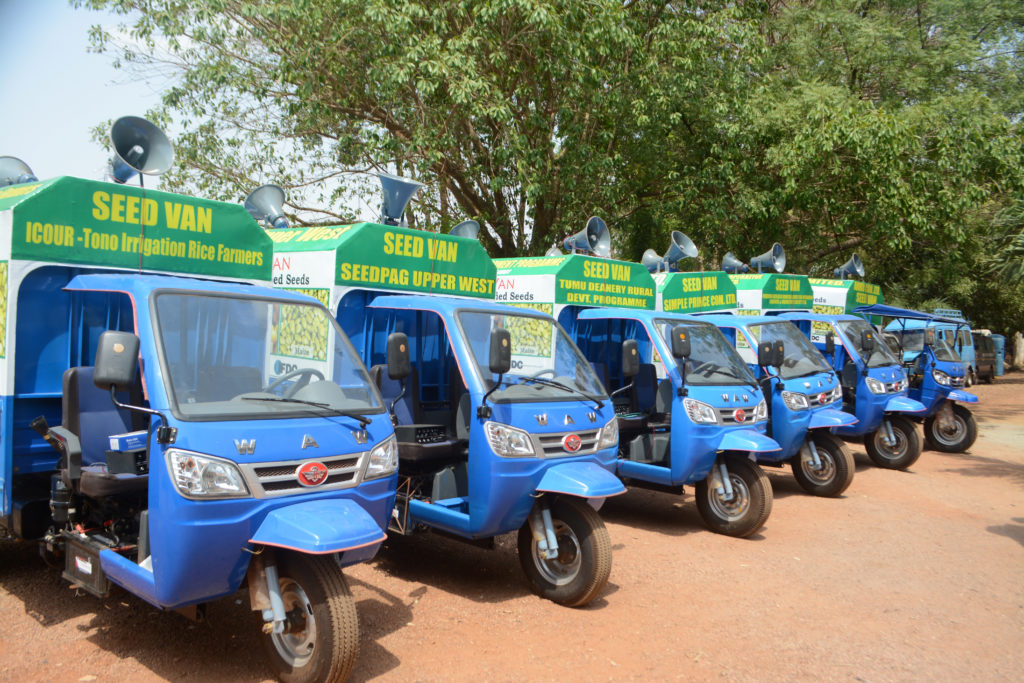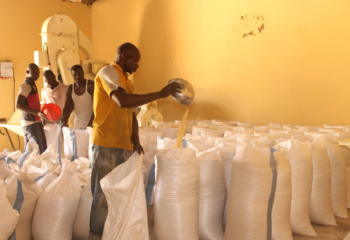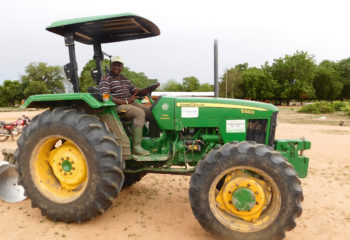
The Feed the Future Ghana Agriculture Technology Transfer Project (2013-2018) increased the availability and use of agricultural technologies to maximize and sustain productivity in Northern Ghana. The project was funded by Feed the Future Initiative/USAID. Implementation partners included the Ghana Agricultural Associations Business & Information Centre (GAABIC), the College of Agriculture and Life Sciences of Iowa State University (ISU), and the Centre for Development Innovation of Wageningen University & Research Centre (WUR-CDI).

Cumulative Highlights
- Among targeted farmers, yield increased by 228% for maize (from 1.70 to 3.88 mt/ha), 287% for rice (from 1.80 to 5.16 mt/ha), and 266% for soybean (from 1.00 to 2.66 mt/ha).
- Demand for certified seed grew, with its use rising from 10% of total seed use in 2013 to 25% in 20108. The introduction of improved technologies led to $7.8 million in incremental sales of targeted input commodities (seeds, fertilizers, and soil amendments).
- The Feed the Future Agriculture Technology Transfer project provided 22 seed vans and training to local private seed companies. In 2018, the vans delivered 259 mt of certified seed and other inputs to 310 communities in hard-to-reach areas.
- The Feed the Future Agriculture Technology Transfer project confirmed the technical feasibility of harvesting floodwater using PAVE and Bhungroo water management technologies. This gives farmers the opportunity to plant two crops in one season (“Double Cropping, Dual Income”).
- By the end of project, over 98,000 female farmers had applied one or more improved technologies or management practices, representing nearly half of the total farmers reached (201,700). 400,000 smallholder farmers were reached through community video screenings on labor-saving equipment and GAPs.
Improving Seed-Sector Value Chains in Ghana
The Feed the Future Ghana Agriculture Technology Transfer Project (2013-2018) introduced new technologies to improve the seed sector in Northern Ghana. The project also explored ways to identify sustainable solutions to increase competitiveness in the rice, soybean and maize value chains.
Requirements for Successful Technology Adoption
New technologies must be effectively and efficiently introduced to create a sustainable private sector supply. There is also a demand for information dissemination, training and other collaborations. Stakeholders are required to approach agriculture as a business, and their work must increase revenues.



